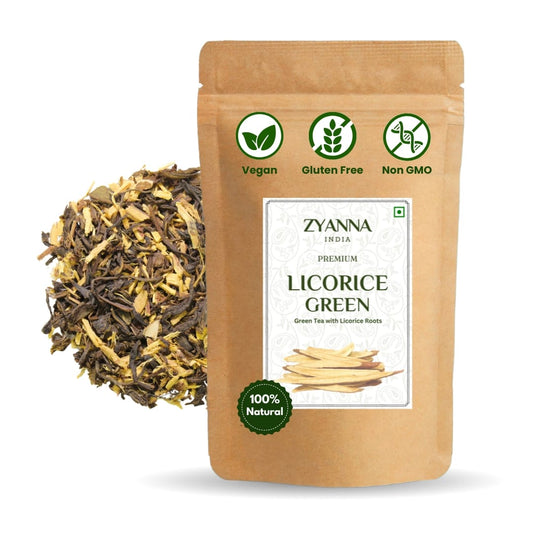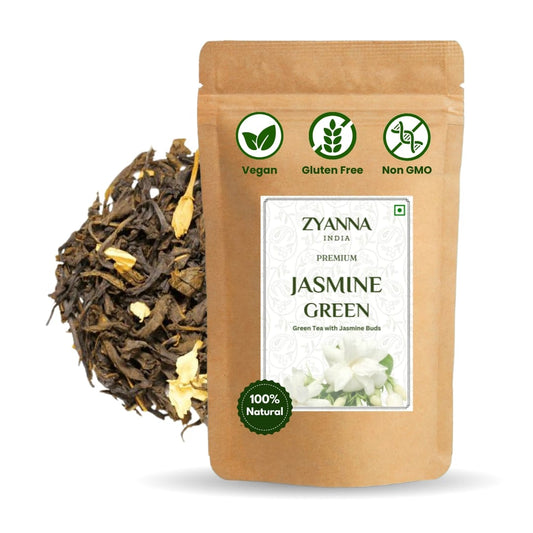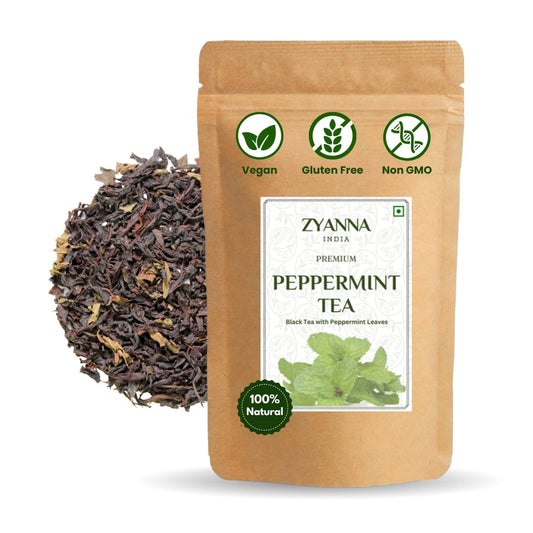Green Tea for Improved Fertility

Green Tea for Improved Fertility
Green tea is renowned for its numerous health benefits, including its potential to enhance fertility. Packed with antioxidants, vitamins, and essential minerals, this tea can positively influence reproductive health. This article explores how this tea supports fertility and provides practical tips for incorporating it into your daily routine for maximum benefits.
Antioxidant Properties of Green Tea
This tea is rich in catechins, especially epigallocatechin gallate (EGCG). These powerful antioxidants help combat oxidative stress, a harmful factor that can damage reproductive health.
-
Ovarian Health: Antioxidants protect ovarian cells from damage, supporting better ovarian function and improving egg quality.
-
Sperm Quality: For men, antioxidants improve sperm health, including motility, morphology, and overall vitality.
Matcha tea powder, a concentrated form of this tea, offers even higher levels of antioxidants, making it an excellent choice for fertility support and overall health enhancement.
Hormonal Balance and Fertility
This tea has a significant impact on hormone levels, which play a crucial role in fertility. The catechins in this tea help regulate key hormones like estrogen and insulin.
-
Managing PCOS: Polycystic Ovary Syndrome (PCOS) affects ovulation and fertility. This tea improves insulin sensitivity, helping regulate menstrual cycles and promoting ovulation.
-
Menstrual Health: Balanced hormones promote regular menstrual cycles, enhancing overall reproductive health and increasing the likelihood of conception.
Regular consumption of the best this tea varieties can help create a stable hormonal environment conducive to conception and pregnancy.
Improved Blood Flow and Reproductive Health
This tea promotes better blood circulation, essential for reproductive health and overall wellness.
-
Uterine Health: Enhanced blood flow supports a healthy uterine lining, improving the chances of implantation and maintaining a healthy pregnancy.
-
Sperm Production: Improved circulation positively affects sperm quality, quantity, and production in men.
Choosing high-quality, organic this tea ensures you maximize these benefits while avoiding potential contaminants that could reduce its effectiveness.
Weight Management with Green Tea
Maintaining a healthy weight is critical for fertility and overall well-being. This tea supports weight management through its thermogenic and metabolism-boosting properties.
-
Boosting Metabolism: This tea and matcha tea powder increase metabolism, aiding in effective weight control.
-
Impact on Fertility: Excess weight can disrupt hormonal balance and reduce fertility. This tea’s role in weight management contributes to better reproductive outcomes and improved health.
Incorporating this tea into a balanced diet can support healthy weight, improve energy levels, and enhance fertility chances.
Stress Reduction and Fertility
Chronic stress significantly affects reproductive hormones and ovulation. This tea contains L-theanine, an amino acid known for its relaxing and calming effects.
-
Reducing Stress: Drinking this tea helps lower stress levels, creating a better hormonal balance and fostering relaxation.
-
Supporting Reproduction: Lower stress improves ovulation, sperm quality, and overall reproductive health.
Opt for the best green tea with high L-theanine content to enjoy its calming benefits and overall health advantages.
Tips for Incorporating Green Tea
-
Moderation is Key: Consume 2-3 cups daily for optimal benefits. Excessive intake may lead to caffeine-related issues.
-
Choose Quality: Select high-quality, organic this tea or matcha tea powder to avoid contaminants and maximize benefits.
-
Limit Sweeteners: Avoid adding sugar or artificial sweeteners that may reduce this tea’s health benefits and contribute unnecessary calories.
-
Complement a Healthy Lifestyle: Pair of this tea with a balanced diet, regular exercise, and stress management for the best results.
-
Consult a Specialist: Before making significant dietary changes, consult a healthcare provider, especially if you have underlying health conditions or are undergoing fertility treatments.
Conclusion
This tea offers numerous benefits for fertility, including antioxidant support, hormonal balance, improved blood flow, weight management, and stress reduction. While it is not a standalone solution, incorporating this tea into a holistic approach to reproductive health can be highly beneficial. By choosing the best green tea and matcha tea powder, you can maximize these advantages for improved fertility and overall wellness. Always consult with healthcare professionals to tailor a fertility-boosting plan that fits your unique needs and ensures optimal results.
You can also find us on Amazon. ZYANNA









